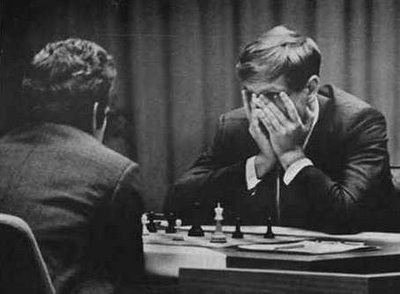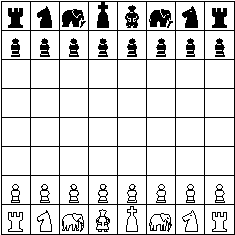THE MAGI
Now as at all times I can see in the mind’s eye,
In their stiff, painted clothes, the pale unsatisfied ones
Appear and disappear in the blue depth of the sky
With all their ancient faces like rain-beaten stones,
And all their helms of silver hovering side by side,
And all their eyes still fixed, hoping to find once more,
Being by Calvary’s turbulence unsatisfied,
The uncontrollable mystery on the bestial floor.
-W.B. Yeats, from Responsibilities, 1916 Although I don’t usually go in for making a big deal of anniversaries – I hate birthday parties, for example – there’s something I really like about the underlying idea of seasonal holidays. I love that there are special songs and foods and color schemes and decorations for certain holidays. I spend months excited about the concept of Christmas and how nice it is that we have the holiday, then on the actual day of Christmas itself I can barely be bothered to remember that it’s not just a normal day. I like the fact that many holidays involve getting together with friends and family and eating a lot, but in general I like the idea of certain holidays more than actually celebrating them.
Although I don’t usually go in for making a big deal of anniversaries – I hate birthday parties, for example – there’s something I really like about the underlying idea of seasonal holidays. I love that there are special songs and foods and color schemes and decorations for certain holidays. I spend months excited about the concept of Christmas and how nice it is that we have the holiday, then on the actual day of Christmas itself I can barely be bothered to remember that it’s not just a normal day. I like the fact that many holidays involve getting together with friends and family and eating a lot, but in general I like the idea of certain holidays more than actually celebrating them. I think what I like is the idea of the holiday celebration as a time machine, where everyone pretends that they’re doing or observing something that happened a long time ago, or at least doing the exact same thing their ancestors did on that particular day. The best example of this might be Passover, which is actually a dramatic reenactment of something that happened way back when the latest in fashion was a little golden chin-mounted marital aid. Or beard protector. Whatever that thing was the Pharaoh used to have coming out of his chin. Anyway, the ancient Egyptians somehow lost their cultural memory to such an extent that now nobody can even agree on what color they used to be, while the Jews still faithfully rehash the story of Prison Break: Israelite Victims Unit every Passover. That may be the current duration record for a holiday-as-time-machine, and I can understand why Frank Herbert assumed there would still be Jews doing their thing in space 40,000 years from now.
I think what I like is the idea of the holiday celebration as a time machine, where everyone pretends that they’re doing or observing something that happened a long time ago, or at least doing the exact same thing their ancestors did on that particular day. The best example of this might be Passover, which is actually a dramatic reenactment of something that happened way back when the latest in fashion was a little golden chin-mounted marital aid. Or beard protector. Whatever that thing was the Pharaoh used to have coming out of his chin. Anyway, the ancient Egyptians somehow lost their cultural memory to such an extent that now nobody can even agree on what color they used to be, while the Jews still faithfully rehash the story of Prison Break: Israelite Victims Unit every Passover. That may be the current duration record for a holiday-as-time-machine, and I can understand why Frank Herbert assumed there would still be Jews doing their thing in space 40,000 years from now. I guess I imagine it as if the passage of time through the years is helical or spiral, and the holidays are times when we try to sort of open a window to something important that occurred on the corresponding point in the previous years. So each Christmas is in some sense every Christmas, every Passover is the first Passover, and so on.
I guess I imagine it as if the passage of time through the years is helical or spiral, and the holidays are times when we try to sort of open a window to something important that occurred on the corresponding point in the previous years. So each Christmas is in some sense every Christmas, every Passover is the first Passover, and so on.
The links that some holidays have to the seasons make this even more poignant, what with the holly and mistletoe and snow and solstices and equinoctes and so on. Plants and the sun go through the same thing at the same time every year, so people should too, is the idea, and the extension of that idea is that “we’re more or less the same as the people who went through this same point in the yearly cycle a thousand years ago. They spent this day in this way with these lights and songs and food, and now we are doing it too.” One thing I particularly like about this historic dimension to holidays is the preservative effect it has on aspects of culture. Think of how old-fashioned the words to many of the Christmas carols are, or how medieval foods like fruitcake and mince pies are. “Wassail” is “wæs hale”, Old English for “be healthy”. Beowulf says it to king Hrothgar as “Wæs thu, Hrothgar, hal!” Eowyn says the same thing when she hands Aragorn his drink in Return of the King. If it weren’t for Christmas I seriously doubt whether anyone would still know the term “wassail”, and that would make the world a slightly less cool place.
One thing I particularly like about this historic dimension to holidays is the preservative effect it has on aspects of culture. Think of how old-fashioned the words to many of the Christmas carols are, or how medieval foods like fruitcake and mince pies are. “Wassail” is “wæs hale”, Old English for “be healthy”. Beowulf says it to king Hrothgar as “Wæs thu, Hrothgar, hal!” Eowyn says the same thing when she hands Aragorn his drink in Return of the King. If it weren’t for Christmas I seriously doubt whether anyone would still know the term “wassail”, and that would make the world a slightly less cool place.
I could probably go on forever but basically even though I’m not religious I’m a big fan of Christmas. Holidays have a lot of cheesy crap tacked on to them but they are also an effective way to maintain folkloric traditions unchanged for any number of years, and I like that. There is a dark side to all of this too, of course. This sort of thing is probably extra effective at fossilizing religious belief, keeping peasants in their place, etc. And cultural holidays can be exlusive or offensive to people from other cultures, those crybabies. But I’d rather dwell on the pleasant aspects of the whole thing. Wæs thu hal!
Tuesday, December 19, 2006
My 32nd Winter Solstice
Monday, December 18, 2006
Leopold! Leopold!

I’ve always been ambivalent about classical music. I’m interested in it, but I feel intimidated, as if it’s beyond me. Some rare and fragile thing which requires a more refined sense than I possess. Like smision. I hesitate to really get into it because it seems like such a vast field of endeavour, and I worry that I will never develop a true appreciation for it no matter how I try. Sort of how I feel about modern art, except that I am almost certain that almost all modern art is ass, while I know that there’s a lot of good classical music out there impatiently awaiting my appreciation.
Note: By claiming that modern art possesses a distinctly asseous character I don’t mean Picasso, or whatever no doubt excellent artist you have in mind, I mean post-post-post-modern art or whatever they’ve been doing since around 1960 or so. Whatever they give the Turner Prize to these days. Goat carcases stuffed with the artist’s used tampons or giant crucifixes made of jars of earwax or whatever. Come on, admit it, that stuff sucks. Actually, after I wrote those last couple sentences I went back to find a funny Turner Prize-winning exhibit to link to, and the one I found was way crazier than I could have ever imagined. The guy who won in 2001 apparently got great acclaim for his masterful piece that involved TURNING THE LIGHTS IN AN EMPTY MUSEUM ROOM ON AND OFF AT FIVE SECOND INTERVALS. No joke could top that. In fact, here’s the entire description of this artistic masterwork from the website just so you don’t miss it. It goes beyond humor, beyond insanity into some unimaginable dimension of gibbering art-curator psychosis. I can only hope that the winning artist was actually performing an oral sex act on whoever wrote this at the moment it was written, because honestly I can think of no other reason for writing this orgasmic, mind-blowingly stark raving bonkers description of somebody turning a lightswitch on and off:
Work # 227: The lights going on and off. Nothing is added to the space and nothing is taken away, but at intervals of five seconds the gallery is filled with light and then subsequently thrown into darkness. Realising the premise set out in Work # 232, Creed celebrates the mechanics of the everyday, and in manipulating the gallery's existing light fittings he creates a new and unexpected effect. In the context of Tate Britain, an institution displaying a huge variety of objects, this work challenges the traditional methods of museum display and thus the encounter one would normally expect to have in a gallery. Disrupting the norm, allowing and then denying the lights their function, Creed plays with the viewer's sense of space and time. Our negotiation of the gallery is impeded, yet we become more aware of our own visual sensitivity, the actuality of the space and our own actions within it. We are invited to re-evaluate our relationship to our immediate surroundings, to look again and to question what we are presented with. Responding to the actual condition in which he has been asked to exhibit, Creed exposes rules, conventions and opportunities that are usually overlooked, and in so doing implicates and empowers the viewer.
Holy. Quacking. Mother. Of. God. Words fail me.
Anyway, back to the topic at hand. Classical music has always struck me as something for true connoisseurs, like tasting a sip of wine and being able to detect hints of loganberries, dander, walnuts, Palmolive and pencil shavings, or like watching a fashion show and swooning over the bold use of pleats, or watching people play cricket without wanting to kill yourself. I don’t know if I have the ear.
As I keep saying over and over again as an excuse when I don’t hear something properly: “I am a visual learner”. This sounds so much less humiliating than the actual responses, which would be “I wasn’t listening to a single word you just said because I was mentally going through World 1-1 on Super Mario Brothers,”
 or “I am only 31 years old but I seem to be going deaf, would you mind repeating that? Perhaps the sound waves have trouble traveling through the thick tufts of hair which have recently been sprouting from my ears.” But I really do, deep down, think I’m a visual learner.
or “I am only 31 years old but I seem to be going deaf, would you mind repeating that? Perhaps the sound waves have trouble traveling through the thick tufts of hair which have recently been sprouting from my ears.” But I really do, deep down, think I’m a visual learner.No, that’s wrong – I learn best through reading things. Is there a term for that? I get drawn to things because they’re connected to something I’ve read. If I see a beautiful landscape, chances are I’ll be reminded of some book where someone describes a beautiful landscape. I might even recall the exact words the author used to describe the stupid landscape.
This strange reliance on text is why, in my younger years, I tended to easily fall into the trap of reading a record review and believing that I would like a certain album based on the review. This is of course impossible. No record review in history has accurately described an album. But I keep falling for it. So technically speaking, I’m probably not a visual learner, it’s more that I relate to the world best through remembering facts I’ve read on paper – literature, poems, quotes. Trivia. I would say I’m a trivial learner with krapaesthetic tendencies and good outerspatial relations.
It is therefore with great surprise that I find myself currently listening to all of Gustav Mahler’s symphonies, one after another, although I’m still not sure what I think. But at least I’m listening. And I’ve been going to great lengths to acquire and listen to a lot of other classical music lately. Over the past few months there has been a lot of activity on the classical-music-appreciation front, me-wise. What gives? The reasons are, like certain parts of a car’s engine, manifold.
Reasons Why I am No Longer Intimidated by Classical Music
 1) I’m getting very, very old. I hate to say it, but I’m no spring chicken, and as you may have noticed the last time you went to a classical music concert, it’s a genre that has some sort of special appeal to the innermost souls of those wispy-skulled specimens who are teetering over the grave. I think I’m more able to sit for longer periods of time and appreciate subtleties than I used to be. Or perhaps my decades of life lived to the fullest, the constant roiling tumults of fierce passion and sorrow have given me a more complete palette of memories and emotions with which to appreciate the sublime outpourings of some dead guy in a wig.
1) I’m getting very, very old. I hate to say it, but I’m no spring chicken, and as you may have noticed the last time you went to a classical music concert, it’s a genre that has some sort of special appeal to the innermost souls of those wispy-skulled specimens who are teetering over the grave. I think I’m more able to sit for longer periods of time and appreciate subtleties than I used to be. Or perhaps my decades of life lived to the fullest, the constant roiling tumults of fierce passion and sorrow have given me a more complete palette of memories and emotions with which to appreciate the sublime outpourings of some dead guy in a wig.2) I now have an iPod. Before this summer, if I wanted to listen to a Wagner opera, I had to juggle four CDs. Now I just have to hit a single button. Of course, in either case I fall asleep 15 minutes into the opera, but now I don’t have the theoretical CD-switching looming over me, disturbing my blissful slumbers. It is nice to be able to have long musical works all on one portable device. Even some symphonies, like Beethoven’s Ninth, sometimes come on two CDs, and it used to be a pain to swap them out. And I’m not complaining about the new format – I’m certainly nowhere near being able to discern the fact that MP3s are usually of far lower quality than CDs. Come on. I can barely tell the different notes apart. I don’t give a rat’s ass about sampling quality or whatever. If I can put 20 or 30 CDs worth of music on a flash drive, the world of classical music suddenly seems a lot less like a spinning plates act and more like a pleasant one-button trip to opera-filled slumberland.
3) Bittorrent. I don’t want to say that I have illegally acquired any music, but I will say that in the past I was a bit hesitant to go out and randomly buy a lot of classical music CDs because of the bewildering variety and high cost. Which conductor should be conducting this piece? Is this a good recording? Is it a good orchestra? Is it digital or analog? I never used to f*#king know, and I still don’t, but now I don’t necessarily have to spend as much as I would have 15 years ago to listen to some things and find out what I like and what I don’t. Back in the day I was always panicked that I’d get home and find out I absolutely hated it, or that I would read something online saying that I’d bought the worst version possible. This leads me to another reason why I feel more confident in liking classical music lately, namely
4) Online research. As I exhaustively described above, I like things more when I have read something on the subject, and thanks to the Internet I can find out crucial information about music without having to hang out with the ponytailed mouthbreathers in the music section of the bookstore. I was able to recently hold a brief conversation about the differences between Shostakovich’s “Leningrad” and “Stalingrad” symphonies, neither of which I’ve ever heard a note of, but I’d picked up the info while randomly reading Wikipedia entries on composers. Again, I would never sit in a bookstore and flip through “Mammoth Biographical Encyclopedia of Great Composers” or whatever, but online I can find out more or less the same stuff in seconds. I try not to base my opinions about music on what I read, but I feel nevertheless that the Internet gives me the initial foothold I need to start really appreciating the hell out of something.
 5) I’ve given up on the idea of progress in art. I honestly used to believe that it was somehow wrong to enjoy art from an older and less enlightened time. Let me explain: when I was in high school, all my classes started with people from way back in the past, and ended up with people in the early 20th century. All your classes were probably like this too. History started when a guy invented the wheel, and reached its fullest flowering when Henry Ford invented the Model T. Obviously anyone before Ford was a nobody. Only a moron would be interested in that prehistoric guy’s stone wheel, now that something better had come along. Same with science, philosophy, art, etc. The Renaissance became the Enlightenment became the Industrial Age, and things got better in every way as we went along. The previous people’s inventions and artwork always seemed clearly inferior to the later peoples’ and the implication was that human history had been a pretty much uninterrupted series of bold steps forward. At least that’s the subliminal attitude I somehow absorbed and held while growing up and even into the first year or two of college.
5) I’ve given up on the idea of progress in art. I honestly used to believe that it was somehow wrong to enjoy art from an older and less enlightened time. Let me explain: when I was in high school, all my classes started with people from way back in the past, and ended up with people in the early 20th century. All your classes were probably like this too. History started when a guy invented the wheel, and reached its fullest flowering when Henry Ford invented the Model T. Obviously anyone before Ford was a nobody. Only a moron would be interested in that prehistoric guy’s stone wheel, now that something better had come along. Same with science, philosophy, art, etc. The Renaissance became the Enlightenment became the Industrial Age, and things got better in every way as we went along. The previous people’s inventions and artwork always seemed clearly inferior to the later peoples’ and the implication was that human history had been a pretty much uninterrupted series of bold steps forward. At least that’s the subliminal attitude I somehow absorbed and held while growing up and even into the first year or two of college.I thought that to appreciate something you had to know its place on the evolutionary scale. This made me feel silly for liking Beethoven, because I assumed that something far better must have been invented since then. Something terribly modern involving twelve tones or polychronous atonality or absolute silence or something. So since I liked Beethoven I decided I had bad taste in classical music, and I sort of gave up for a while. It’s taken a long time, but I think I’ve discarded the whole absurd notion that human history has been one long climb upwards towards perfection. I think the first time this really hit home to me was in an art history class in college, when I realized that I vastly preferred Romanesque architecture to Gothic. But Gothic came later, interrobang!? And then came colossally crappier things like Baroque and Rococo, interrobang!? I finally wrapped my head around the idea that newer was not always better. So now I’m able to listen to Beethoven without feeling a nagging guilt that I should be listening to somebody further down the evolutionary ladder instead. I mean up the ladder. Stupid metaphor getting me all turned around. There is no evolutionary ladder for art. Well, there is, but it has nothing to do with quality. Older things can be better. Same way that cockroaches are more successful than a lot of your fancy modern bugs. By the way, Henry Ford was a complete dickhead.
 6) I don’t believe that I’m underqualified to be “cultured” any more, and that takes some of the fear out of certain subjects. I guess growing up in a normal American family I always subconsciously assumed that there was some master race of incredibly sophisticated people lounging around in Europe or somewhere, with perfect taste and an encyclopedic knowledge of the finer things in life, and that I was somehow never going to be in that league. Classical music seemed to be something for those people, whoever and wherever they were. Then I worked with a lot of people who seemed pretty “cultured” in Munich, and I started to realize that everyone’s faking it and that everyone’s utterly full of sh*t. Sure, I’m not perfectly refined. Sure, on a recent trip to the Philharmonic I had to be issued a jacket and shoes by the ushers because my attire was so far, far below the minimal standard of sartorial decency, and then I was so amused by the whole thing that I giggled uncontrollably for the first 10 minutes of the concert. But somehow I’ve made my peace with my level of refinement and damn it I definitely have just as much right to pretend I know something about a pretentious and complicated subject like classical music as any other jerk. So I’m not as intimidated by classical music as I might have been years ago.
6) I don’t believe that I’m underqualified to be “cultured” any more, and that takes some of the fear out of certain subjects. I guess growing up in a normal American family I always subconsciously assumed that there was some master race of incredibly sophisticated people lounging around in Europe or somewhere, with perfect taste and an encyclopedic knowledge of the finer things in life, and that I was somehow never going to be in that league. Classical music seemed to be something for those people, whoever and wherever they were. Then I worked with a lot of people who seemed pretty “cultured” in Munich, and I started to realize that everyone’s faking it and that everyone’s utterly full of sh*t. Sure, I’m not perfectly refined. Sure, on a recent trip to the Philharmonic I had to be issued a jacket and shoes by the ushers because my attire was so far, far below the minimal standard of sartorial decency, and then I was so amused by the whole thing that I giggled uncontrollably for the first 10 minutes of the concert. But somehow I’ve made my peace with my level of refinement and damn it I definitely have just as much right to pretend I know something about a pretentious and complicated subject like classical music as any other jerk. So I’m not as intimidated by classical music as I might have been years ago.So there you have it. I now feel fully qualified to successfully appreciate classical music, whereas I didn’t before. I had no idea I had so much to say on the matter. I guess I haven’t posted here for a while and my blogging mojo must have been building up like a magma pocket under Krakatoa. If you’ve read through this whole thing I apologize from the bottom of my heart and I can only hope that my little jokes here and there made up for the astoundingly boring topic.
Monday, December 11, 2006
a really good video game
 I would like to make a brief plug for Eternal Darkness, perhaps the best video game ever made, if you like the genre of horror time travel and the fiction of H.P. Lovecraft. I realize that this is a small target audience, but I would still like to spread the good word. Like “Beyond Good and Evil”, it was probably doomed to be a cult classic from the start. Oh well.
I would like to make a brief plug for Eternal Darkness, perhaps the best video game ever made, if you like the genre of horror time travel and the fiction of H.P. Lovecraft. I realize that this is a small target audience, but I would still like to spread the good word. Like “Beyond Good and Evil”, it was probably doomed to be a cult classic from the start. Oh well.
Wednesday, December 06, 2006
Merry Xmas, Xmas people! Xmas!
 Just a brief and hip-shatteringly jolly Advent-season note to point out that what’s seen as the most commercial and crass way to write “Christmas”, that is, “Xmas”, is actually a literate and historically conscious way to write the name of the holiday.
Just a brief and hip-shatteringly jolly Advent-season note to point out that what’s seen as the most commercial and crass way to write “Christmas”, that is, “Xmas”, is actually a literate and historically conscious way to write the name of the holiday. The “X” in Xmas is not an invention of Hollywood, McDonald’s or Wal*Mart, but is in fact the Greek letter chi, the first letter in the Greek “christos”, Jesus’ title. Rudolph may have been a department-store marketing scheme, but the X is hard-core.
 X as shorthand for “Christ” has a long history. For xample, at the battle of the Milvian bridge in 312 A.D., legend has it that the Emperor Constantine saw a floating mystical “chi-rho” (XP) symbol in the heavens, a portent of victory if he accepted Christianity. He ordered his soldiers to put the symbol on their shields. This was, you will note, far before the age of crappy American nu-skool spellings like “donut” and “dri-kleen”. This is about as old-school as an abbreviation can get.
X as shorthand for “Christ” has a long history. For xample, at the battle of the Milvian bridge in 312 A.D., legend has it that the Emperor Constantine saw a floating mystical “chi-rho” (XP) symbol in the heavens, a portent of victory if he accepted Christianity. He ordered his soldiers to put the symbol on their shields. This was, you will note, far before the age of crappy American nu-skool spellings like “donut” and “dri-kleen”. This is about as old-school as an abbreviation can get.This whole issue clears up a poorly researched and utterly useless factoid I read and memorized as a child in, I believe, The Book of Lists. For some reason I more or less memorized this book as a kid, although I now realize that it wasn’t as dependable as its all-list format made it seem. It was kind of like the Guinness Book of Records in that way; you knew it was sheer raving madness but the statistics-based format lent it some kind of believability. Kids are suckers for that combination of freak show and official list. I remember staring at that picture of the man with the record for longest fingernails for hours. But fingernails are at least theoretically measureable. Why was the guy with the beard of bees in the record book? What measurement did they use to calculate the record-breaking nature of his beard of bees? I call shenanigans.
 Anyway, the factoid which I think was from The Book of Lists was: “Christopher Columbus always signed his name ‘Xpo Ferens’. Nobody knows why.” I barely know the rudiments of Greek or Latin, but it’s blindingly clear to me why – why nobody involved in compiling that book had half a brain cell is the true mystery. I guess this was before the Internet, when it was easy for people to propagate urban legends and claim that things were mysterious when they were really nothing of the sort. “Xpo Ferens” is just a slightly strange way of writing “Christopher”. “Xpo” is short for Greek “Christo”, which looks like “Xpisto” in Latin characters, and “ferens” is Latin for “bearing”. Christopher means Christ-bearer or Christ-ferry, as everyone who’s seen a painting of Saint Christopher must know. He was basically a kind of Blaster to Jesus’s Master, a mythical giant who carried baby Jesus across a stream, which is why he’s no longer really a saint and was dropped from the calendar. You almost expect Baby Jesus to screech, “Who rule Bartertown?” At least I do.
Anyway, the factoid which I think was from The Book of Lists was: “Christopher Columbus always signed his name ‘Xpo Ferens’. Nobody knows why.” I barely know the rudiments of Greek or Latin, but it’s blindingly clear to me why – why nobody involved in compiling that book had half a brain cell is the true mystery. I guess this was before the Internet, when it was easy for people to propagate urban legends and claim that things were mysterious when they were really nothing of the sort. “Xpo Ferens” is just a slightly strange way of writing “Christopher”. “Xpo” is short for Greek “Christo”, which looks like “Xpisto” in Latin characters, and “ferens” is Latin for “bearing”. Christopher means Christ-bearer or Christ-ferry, as everyone who’s seen a painting of Saint Christopher must know. He was basically a kind of Blaster to Jesus’s Master, a mythical giant who carried baby Jesus across a stream, which is why he’s no longer really a saint and was dropped from the calendar. You almost expect Baby Jesus to screech, “Who rule Bartertown?” At least I do. Anyway, my point was that if you want to say or write “Xmas”, feel free. You’ll be using an ancient Greek letter, not being cheap and commercial. Merry Xmas.
Anyway, my point was that if you want to say or write “Xmas”, feel free. You’ll be using an ancient Greek letter, not being cheap and commercial. Merry Xmas.p.s. This post is dedicated to my dad, whose birthday is coming up on the 8th and who spent a lot of time and effort devising well-researched and historically inquisitive Sunday School lessons in a similar vein when we were kids. I might not be as religious as he is, but I think we both appreciate the history of religion in a similar way.
Thursday, November 30, 2006
Cribs: Mongolian Edition
Since winter is approaching and it’s difficult to get in a wintry mood here in Kuala Lumpur, I’ve taken to looking for the most desolate and godforsaken frigid wastelands I can find on Google Earth, to get me in the holiday mood. I’ve been checking out fjords and icebergs and the Faroe Islands and so on.
 I recommend the area around the Kamchatka Peninsula for a true scene of bitter, soul-crushing emptiness – I can’t really tell but I imagine most of what I see is fishing villages, oil outposts and Soviet military bases. So I assume everyone there probably looks a lot like Santa, except with fewer sleighbells, toys and jollity, and more vodka, knife fights and Russian Roulette.
I recommend the area around the Kamchatka Peninsula for a true scene of bitter, soul-crushing emptiness – I can’t really tell but I imagine most of what I see is fishing villages, oil outposts and Soviet military bases. So I assume everyone there probably looks a lot like Santa, except with fewer sleighbells, toys and jollity, and more vodka, knife fights and Russian Roulette.
So let’s take a little gander at a place I assume is pretty cold and desolate, Ulaan Baatar, Mongolia. I don’t remember the name having those extra “a”s when I was a kid. Maybe the city’s growing. I can only hope I live long enough to see them add a third and possibly even fourth “a” into the mix.
Here’s the city. Looks small and dusty, but presentable. There’s a big central square, a soccer field, and what looks like residential sprawl on the hills around it. Much less exotic than I was expecting. Maybe a closer look will show some local color.

Let’s zoom in on those hillside residences, shall we? Take a gander at how Ulaan Bataar’s middle class like to set up their cribs, just a few hundred yards from the bustling capital’s heart. Oh dear. Those aren’t... They can’t be...

They are. Tents.

Everyone apparently lays out a nice little yard with a big stone wall around it, and then sets up their yurt. Er, hello, Mongolians? Far be it from me to tell you how to live your lives but dudes if you’ve got the massive shipments of bricks and mortar for those sturdy fences you know what else you can do with them? BUILD A F&#KING HOUSE. Oh well. Sarcasm and cultural insensitivity aside, it’s pretty cool that they still live in those tents, even just outside the dead center of the capital city. ’Cause that’s how they roll. That’s probably what suburban Chicago would look like today, if we hadn’t kicked out all the Indians. Except with teepees, of course.
Here is a picture I just found of what those white circles in the Google Earth pictures must be. As I suspected, yurts, yurts and more yurts. Yurtles all the way down. Note that it clearly has a concrete foundation. Oh you wacky Mongolians.

 I recommend the area around the Kamchatka Peninsula for a true scene of bitter, soul-crushing emptiness – I can’t really tell but I imagine most of what I see is fishing villages, oil outposts and Soviet military bases. So I assume everyone there probably looks a lot like Santa, except with fewer sleighbells, toys and jollity, and more vodka, knife fights and Russian Roulette.
I recommend the area around the Kamchatka Peninsula for a true scene of bitter, soul-crushing emptiness – I can’t really tell but I imagine most of what I see is fishing villages, oil outposts and Soviet military bases. So I assume everyone there probably looks a lot like Santa, except with fewer sleighbells, toys and jollity, and more vodka, knife fights and Russian Roulette.So let’s take a little gander at a place I assume is pretty cold and desolate, Ulaan Baatar, Mongolia. I don’t remember the name having those extra “a”s when I was a kid. Maybe the city’s growing. I can only hope I live long enough to see them add a third and possibly even fourth “a” into the mix.
Here’s the city. Looks small and dusty, but presentable. There’s a big central square, a soccer field, and what looks like residential sprawl on the hills around it. Much less exotic than I was expecting. Maybe a closer look will show some local color.

Let’s zoom in on those hillside residences, shall we? Take a gander at how Ulaan Bataar’s middle class like to set up their cribs, just a few hundred yards from the bustling capital’s heart. Oh dear. Those aren’t... They can’t be...

They are. Tents.

Everyone apparently lays out a nice little yard with a big stone wall around it, and then sets up their yurt. Er, hello, Mongolians? Far be it from me to tell you how to live your lives but dudes if you’ve got the massive shipments of bricks and mortar for those sturdy fences you know what else you can do with them? BUILD A F&#KING HOUSE. Oh well. Sarcasm and cultural insensitivity aside, it’s pretty cool that they still live in those tents, even just outside the dead center of the capital city. ’Cause that’s how they roll. That’s probably what suburban Chicago would look like today, if we hadn’t kicked out all the Indians. Except with teepees, of course.
Here is a picture I just found of what those white circles in the Google Earth pictures must be. As I suspected, yurts, yurts and more yurts. Yurtles all the way down. Note that it clearly has a concrete foundation. Oh you wacky Mongolians.

Friday, November 24, 2006
Al O’Limerick

Wherein I try my hand, not once but frice... er, force?... four times, at an auncient Irish verse form as time-honoured and venerable as the beloved Shamrock Shake:
1. The Moistened Pedagogue
Malaysia: a substitute teacher
had sweat as a notable feature.
He sweated all day
tried to wipe it away
Others said, “what a damp, smelly creature.”
2. Customs Officials
or
Sure, Use Up an Entire Page of My Passport for One Stamp, You Stamp-Happy Ass
When traveling in Indonesia
The visa fee might well displease you
It’s thirty-five bucks
yet the government sucks…
Where’s that money go after they squeeze you?
3. Formatting Fatigue
I find it a tedious trial
to write things in APA style.
I forgot to indent
and down my grade went
I’ll be angry about it a while.
4. Bistromath
When having a restaurant luncheon
The math at the end doesn’t function.
When your friends add their share
the result’s far from fair
And you stifle the impulse to punch ‘em.
Monday, November 20, 2006
the courage to hate the olympics
 I’m a vigorous, lusty man of grandiose gestures and consuming passions, and I live life to the fullest. Sometimes I sit for long periods of time, and – this is where it starts to get tricky; don’t try this at home – sometimes I lie down for long periods of time. As if that weren’t enough, sometimes I even play video games while sitting or lying down. One of my many extreme sports hobbies is interactive fiction.
I’m a vigorous, lusty man of grandiose gestures and consuming passions, and I live life to the fullest. Sometimes I sit for long periods of time, and – this is where it starts to get tricky; don’t try this at home – sometimes I lie down for long periods of time. As if that weren’t enough, sometimes I even play video games while sitting or lying down. One of my many extreme sports hobbies is interactive fiction. Interactive fiction is basically just a fancy term for text-based computer games. They were popular in the 1980s. The most well-known game series was called Zork. I always liked these games because, like reading a book, they allow you to use your own imagination to picture what’s going on. Only within the last couple of years have video games started to have good enough graphics to compete with the mental pictures I used to draw when I played text adventures. Anyway, I’m still quite interested in the genre and often re-play old games or try some of the new homemade games being created by enthusiasts. I even programmed a very short game myself in Inform 6 for a grad school project this summer.
 Anyway, while I was looking around at online interactive fiction resources the other day, I came across the writings of a text game author, a Mr. Stephen Bond, and to my surprise found that there is actually someone who’s more critical than I am. This guy hates the Olympics. That takes a certain pessimistic genius, and my hat’s off to him. I can’t argue with him, either – The Olympics do pretty much suck; I just never would have dared to take such a bold ideological stance on my own. I have no point here except that I wanted to give him a shout-out for providing me with some funny and thought-provoking reading material. Here’s an excerpt from a post I particularly liked, called “how to recognise people who try to command, control and influence people”:
Anyway, while I was looking around at online interactive fiction resources the other day, I came across the writings of a text game author, a Mr. Stephen Bond, and to my surprise found that there is actually someone who’s more critical than I am. This guy hates the Olympics. That takes a certain pessimistic genius, and my hat’s off to him. I can’t argue with him, either – The Olympics do pretty much suck; I just never would have dared to take such a bold ideological stance on my own. I have no point here except that I wanted to give him a shout-out for providing me with some funny and thought-provoking reading material. Here’s an excerpt from a post I particularly liked, called “how to recognise people who try to command, control and influence people”:The Only One in Control
The schemer must always appear in control of the situation, even when the situation does not require control of any kind. In fact, schemers usually lose control of things in a real crisis, but that is beside the point. One way in which the schemer maintains the appearance of control is by making out that the surrounding people are losing it.
For example, a schemer may tell someone to ‘take it easy’, even when that person is taking it easy, or say ‘Relax, we have plenty of time,’ even when the other person is relaxing and is well aware that there is plenty of time. Other typical phrases are ‘It's important that we maintain a sense of focus here,’ and ‘Let's keep our minds on the task at hand.’
Hypnosis
Schemers believe that they can bend other people’s wills by the power of mind alone. They are often seen attempting a form of hypnosis, which involves staring at someone in the eyes, addressing them by their first name, and telling them to do something.
“Tony, you'll do that for me, won’t you.”
The hypnotism attempt is sometimes accompanied by a pat on the back or some other physical contact. If the victim is demoralised enough, the hypnosis will actually work.
The Fawlty Tow’r
 Why does everyone who wants to force themselves into a prefabricated poetic form have to write haikus all the time? Screw haikus.
Why does everyone who wants to force themselves into a prefabricated poetic form have to write haikus all the time? Screw haikus.Why not try to funnel our poetic juices into another juice box, as it were? I choose to let the capricious sun of inspiration play a high C until I live to be 100 Plus. Tetra Pak. NO MORE JUICE BOXES, CHLOE.
Crap. I’ll start again.
One of the many books I’ve started but not finished is The Faerie Queene by Edmund Spenser.
One of the many reasons that I haven’t finished reading this book is the strange and extremely restricting meter in which the poem was written. It has to be one of the most convoluted ways to write a poem I’ve seen. Here’s my first and so far only shot at a single stanza of Spenserian metre. Now keep in mind that old Spenser wrote about a jillion stanzas using the exact same rhyme scheme. No wonder his epic poem doesn’t make any damn sense. Anyway, here’s my one stanza. It’s a true story of a 21st-century manchild and his quasi-legal downloading:
 Tonight I sought to burn a DVD
Tonight I sought to burn a DVDContaining episodes of Fawlty Tow’rs.
But what should I upon exam’ning see?
The disc could hold but one and one-half hours!
I’d thought these discs possess’d quite greater pow’rs.
Three episodes at most a disc would fit!
Thus my enthusiasm for it sours.
Now on my hard drive those old shows will sit;
I watch the tiny screen and feel an utter twit.
Monday, November 13, 2006
The Ruiner’s Lament
 Kim calls me a “ruiner” because I’m so critical of everything. And because I’m often quite crotchety. And because I’m prone to believing critical movie and book reviews, even if the reviews are clearly written by blithering idiots. And because I’m prone to telling her what she feels are crucial details about the endings to things before she’s seen them. Hm... now that I think about it I suppose there might be a teeny tiny speck of justification for the title of ruiner. I certainly believe in preemptively detesting everything and everyone until I see clear and incontrovertible evidence of nonsuckiness.
Kim calls me a “ruiner” because I’m so critical of everything. And because I’m often quite crotchety. And because I’m prone to believing critical movie and book reviews, even if the reviews are clearly written by blithering idiots. And because I’m prone to telling her what she feels are crucial details about the endings to things before she’s seen them. Hm... now that I think about it I suppose there might be a teeny tiny speck of justification for the title of ruiner. I certainly believe in preemptively detesting everything and everyone until I see clear and incontrovertible evidence of nonsuckiness.Well, the spoiler has been bespoiled. I’ve been hoist on my own petard. A petard is a type of bomb named after “a loud discharge of intestinal gas,” by the way. Just because something’s in Hamlet doesn’t mean it’s not naughty.
Anyway, I’ve gone and done ruined something for myself, and that something is several of my very favorite poems, including the well-known “The Lake Isle of Innisfree” by Yeats and “Skunk Hour” by Robert Lowell. I do not claim to have particularly refined or obscure taste in poetry; both of these are over-anthologized poems which most students are made to study at some point. I know I saw both of them ad nauseam in both high school and college, and strangely they never got old and I liked both very much indeed. Then came The Spoilening.
I recently acquired a copy of what Amazon calls In Their Own Voices: A Century of Recorded Poet [BOX SET] (I guess they’ve still got some kinks to work out of their titling system). It’s just what it sounds like, a set of recordings of poets reading their own work. The first one is Walt Whitman, apparently recorded on the very first record player Thomas Edison ever built – you know, the one made out of granite and powered by human blood. It’s an interesting and valuable piece of history, and a priceless record of one of America’s greatest poets.
 Now future generations will know that Walt Whitman sounded like a big women’s blouse. (If you have Windows Media Player or RealPlayer, check out the samples on the Amazon page and
Now future generations will know that Walt Whitman sounded like a big women’s blouse. (If you have Windows Media Player or RealPlayer, check out the samples on the Amazon page and This, sadly, was not the most disillusioning of my discoveries. For whatever reason Whitman sounded kind of wimpy, but Yeats, doing “The Lake Isle of Innisfree”, has an entirely different problem.
In case you’re not familiar with it, “The Lake Isle of Innisfree” is the most peaceful and meditative poem about harmony with the natural world ever written by a non-Japanese person. It’s about having a calm quiet place to think about, about calmly hearing the sound of water lapping on the shores, even when you’re in the grey city. It’s lovely and very, very peaceful and soothing.
 The problem is that when Yeats, the author of this pleasant, soothing poem, reads it himself he bellows it out as if it’s Judgment Day. He has a booming “Grrreat Poetick RRRRECITATION!” voice that sounds as if he’s Moses reading the Commandments off the stone tablets. He sounds like Saruman on his little oration balcony at Isengard getting the Uruk-Hai really whipped up before they go and pillage something. Which would be great for many of Yeats’ poems, “The Second Coming”, for example, but which is just really, really crappy for “Innisfree”.
The problem is that when Yeats, the author of this pleasant, soothing poem, reads it himself he bellows it out as if it’s Judgment Day. He has a booming “Grrreat Poetick RRRRECITATION!” voice that sounds as if he’s Moses reading the Commandments off the stone tablets. He sounds like Saruman on his little oration balcony at Isengard getting the Uruk-Hai really whipped up before they go and pillage something. Which would be great for many of Yeats’ poems, “The Second Coming”, for example, but which is just really, really crappy for “Innisfree”. It’s such a soothing poem when I read it on the page. “And I shall have some peace there, for peace comes dropping slow…” But when Yeats reads it, it’s like he’s just getting to the last line of a campfire story about hobgoblins and banshees: “FeRRRR PEACE… comes DRRRRRROPPING slO-O-O-O-O!” I understand that he came from an earlier time, when poets probably all had a sort of powerful Master Thespian declaiming voice they used, but now when I think of the poem, or even just see the words on a page, I think of that old man’s furious growling voice. It’s exactly like sitting down for a session of Zen meditation and hearing Gandalf hollering “YOU. SHALL. NOT. PASS!” every time you close your eyes. It’s just ruined it.
 I won’t even go into what I think of Robert Lowell’s nutball voice. Let’s just say I liked “Skunk Hour” a lot more when I didn’t have the unforgettable mental image of it being read aloud by an effeminate Mayor Quimby.
I won’t even go into what I think of Robert Lowell’s nutball voice. Let’s just say I liked “Skunk Hour” a lot more when I didn’t have the unforgettable mental image of it being read aloud by an effeminate Mayor Quimby. Wallace Stevens on the other hand didn’t ruin his poem at all. I pretty much would have figured he had a silly voice – I mean, when you name a poem “The Emperor of Ice-Cream” and include the lines “bid him whip/
In kitchen cups concupiscent curds,” you’re setting a certain circus-tent vibe from the get-go. So he’s fine in my book.
And then there’s Ezra Pound. That enormous poseur. Tell me if you hear this, but I could swear that he’s exactly copying Yeats’ “Grrreat Poetick RRRRECITATION!” voice and rhythm. Maybe young Idahoans back then sounded exactly like elderly Irishmen, I don’t know, but it definitely seems suspicious.
Ruined. All ruined. Damn you, today’s modern multimedia world of the future! Damn you to Hell, sir! Now I’m wondering what else I like in written form that would suck if I heard it aloud by the author. Maybe Dante sounded like Bobcat Goldthwaite. Maybe Abraham Lincoln sounded like Rosie O’Donnell. ARGH.
Now, I know I have been harsh on these poets’ voices, but I’m not saying that I would sound any better if I read poetry aloud. Au contraire, mon frère. On the few occasions when I’ve heard my own voice on the answering machine, I’ve been filled with an urge to punch myself in the head so that no one would ever have to hear that awful voice again. I’m just saying that I’ve discovered that some poetry is MUCH, MUCH better when left on the page. Again, I urge you to listen to the samples yourself and let me know if you agree.
In any case, I will never hear those poems the same way again. And thus, faire Reader, was the Naturall Order turn’d upon its Arse, and the Ruiner him Self Ruin’d.
Tuesday, November 07, 2006
Shantih Shantih Sieg Heil
 I’ve already done a post about something I saw on Bali that combined European culture, modern Asia and Sanskrit word origins (chess). Oddly, that was merely the second most mind-blowing thing I witnessed on that trip which combined those exact same fields of interest. If you are someone who does not already know Sanskrit but who happens to be as interested in connections between far-flung words as I am, prepare to be thunderstruck. Both of you.
I’ve already done a post about something I saw on Bali that combined European culture, modern Asia and Sanskrit word origins (chess). Oddly, that was merely the second most mind-blowing thing I witnessed on that trip which combined those exact same fields of interest. If you are someone who does not already know Sanskrit but who happens to be as interested in connections between far-flung words as I am, prepare to be thunderstruck. Both of you.As we were being shamanistically blessed by a woman along the side of the road (it was the van driver’s idea, and is a good example of why a trip to Bali does have redeeming features, despite what my lovely wife might say), she came up to my window (the Balinese witch doctrix, not Kim), smeared some grains of rice on my forehead, and reverently said to me: “Om Swasti asti blabitty blah blah blah…”. There was a lot more to the blessing than that, but who cares.
I knew the old Hakenkreuz was an ancient religious symbol – but I didn’t know that the exact same word more or less was still a friendly everyday greeting on Bali. What the heck? Then it hit me – and this is the moment of utter jaw-dropping etymological pyrotechnics – if “swasti(ka)” is some sort of cheery salutation then maybe, I thought, it’s the same thing as hello in Thai; “sawadee ka”.
It was like the globe had just twisted into a Klein bottle. Nazi soldiers and Thai monks went around saying the exact same word several times a day? That’s insane. That’s like learning that “colostomy bag” means the same thing as “fuzzy bunny”. A similar revelation which blew my mind back in the day was that “Aryan” and “Iran” are more or less the same word, but this swastika thing stretched even further across the globe, and was even more bizarre.
 I haven’t actually found that much direct information yet about the connection between swastika and sawadee ka. If you happen to know anything on the subject let me know. Maybe the “ka” suffix part is just a coincidence and only swasti is really a leftover from Sanskrit, I dunno.
I haven’t actually found that much direct information yet about the connection between swastika and sawadee ka. If you happen to know anything on the subject let me know. Maybe the “ka” suffix part is just a coincidence and only swasti is really a leftover from Sanskrit, I dunno.
Friday, November 03, 2006
Sam Sees an Oliphaunt
 In Bali recently I saw dozens of pairs of people sitting on the sidewalks in front of their souvenir stores and playing chess. I thought that this was really neat. I assume that the trend got started because among the souvenirs that the Balinese mass-produce are wooden chess sets, but even so there was something fascinating about seeing non-Westerners playing chess for fun. I suppose I’ve got a stereotype of chess as a highly refined and intellectual European pursuit, to be carried out in utter silence by perspiring Slavs or Icelanders with rumpled suits and enormous egg-like craniums. Seeing this reminder that this was just a stereotype and that it’s a fun game for just about anyone was quite inspiring. I’m trying to brush up on my chess skills. It is, however, difficult to polish a turd. I’m horrible at chess. It requires long-range strategic thinking which, as Kim knows from when we’re planning vacations years in advance, is difficult for me. But anyway, I’m working on it.
In Bali recently I saw dozens of pairs of people sitting on the sidewalks in front of their souvenir stores and playing chess. I thought that this was really neat. I assume that the trend got started because among the souvenirs that the Balinese mass-produce are wooden chess sets, but even so there was something fascinating about seeing non-Westerners playing chess for fun. I suppose I’ve got a stereotype of chess as a highly refined and intellectual European pursuit, to be carried out in utter silence by perspiring Slavs or Icelanders with rumpled suits and enormous egg-like craniums. Seeing this reminder that this was just a stereotype and that it’s a fun game for just about anyone was quite inspiring. I’m trying to brush up on my chess skills. It is, however, difficult to polish a turd. I’m horrible at chess. It requires long-range strategic thinking which, as Kim knows from when we’re planning vacations years in advance, is difficult for me. But anyway, I’m working on it.So anyhoo, a little internet research on the history of chess and what do I find but something INCREDIBLY INTERESTING. At least to me. The bishops are supposed to be elephants!
 From this website on the Indian game which is apparently the direct ancestor of our chess set:
From this website on the Indian game which is apparently the direct ancestor of our chess set:The pieces were raja (king), mantri (counsellor, ancestor of the ferz), gaja (elephant, later called fil), asva (horse), ratha (chariot, later called rook), and pedati (infantry or pawns).
The elephants/bishops used to move a little differently; if you have Java working properly you can play the old version here.
Not only is that little historical background into the pieces interesting in itself, but those Sanskrit or whatever names of the pieces are quite meaningful too. “Raja”, “Mantri” and “Gaja” are all still Malay words, and “Ratha” and “Pedati” really show their indo-european origins. We also used to eat at an Indian restaurant in Munich called Radha which I believe was supposed to mean “chariot”. As if that weren’t enough, “Mantri” a.k.a. Menteri or minister in Malay is supposedly the origin of the word “Mandarin”.
 Overall I think I like chess better now that I know the pieces are all supposed to represent actual military field units and not some weird lathe-turned royal family out on a pleasant stroll with their favorite priests and a couple of self-propelled castle towers. Au contraire! Chess is the prequel to Advance Wars.
Overall I think I like chess better now that I know the pieces are all supposed to represent actual military field units and not some weird lathe-turned royal family out on a pleasant stroll with their favorite priests and a couple of self-propelled castle towers. Au contraire! Chess is the prequel to Advance Wars.
Tuesday, October 31, 2006
Cosmic Karma, Cosmo Kramer and Underpants Ecstasy
 On Bali last week we had a tour guide, Darma (yes, as in Dharma), who had a lot of very insightful stories about growing up in a rustic Balinese village, the island’s traditional society, and the challenges and changes his island faces. For someone wearing a tight-fitting blue tracksuit and who seemed to be concealing a dark past in the Javanese cruise-ship industry, he was remarkably wise.
On Bali last week we had a tour guide, Darma (yes, as in Dharma), who had a lot of very insightful stories about growing up in a rustic Balinese village, the island’s traditional society, and the challenges and changes his island faces. For someone wearing a tight-fitting blue tracksuit and who seemed to be concealing a dark past in the Javanese cruise-ship industry, he was remarkably wise.During our tour, in between un-called-for and frankly gut-wrenching attempts to get us to laugh at a ghastly pun which involved asserting that “BBC” stood for “bananas, bamboo and coconuts”, the puckish yet insightful Darma lucidly described the way that the close-knit village unit perpetuates and preserves traditional Balinese life and ritual, and it really got me thinking. What proportion of what we see as the great achievements of humanity was simply due to old-fashioned peer pressure?
 In other words, would any human society, religion, or cultural system of any kind have been possible without the nosy neighbor? I’m not so sure. In fact if you think about it, until recently in almost every nation on Earth, the idea that one of the main points in life was not doing something which would shock the neighbors was the glue which kept the world running. It’s how pyramids and cathedrals got built. Shame. Guilt. Conformity. Religious obligation. Rituals. Holidays. Mass gatherings. Belonging. Ancient Athens, the birthplace of democracy, was also the birthplace of ostracism.
In other words, would any human society, religion, or cultural system of any kind have been possible without the nosy neighbor? I’m not so sure. In fact if you think about it, until recently in almost every nation on Earth, the idea that one of the main points in life was not doing something which would shock the neighbors was the glue which kept the world running. It’s how pyramids and cathedrals got built. Shame. Guilt. Conformity. Religious obligation. Rituals. Holidays. Mass gatherings. Belonging. Ancient Athens, the birthplace of democracy, was also the birthplace of ostracism. Now, however, mainstream American society is currently based on the idea that nosy neighbors should mind their own damn business, and in fact are liable to get a cap in their ass if they get too nosy. We were raised to believe that the other people around us have no right to tell us jack, and are simply useless lumps to be ignored, exploited or possibly pumped full of lead on our quest to become a President, a billionaire or both. We’re encouraged to think that each American citizen should personally invent his or her own entire outlook on life from scratch without consulting family or the neighbors at all.
 As a lifelong ostracised oddball and someone who deeply, deeply detests conformity for conformity’s sake I can’t believe I’m saying this, but I’m starting to wonder if maybe a little more German-style shame wouldn’t be an improvement on the current US outlook. I’m not advocating a return to putting people in stocks or forcing them to wear the shame flute, but I am starting to think that there must be a happy medium in between the antisocial American “individualism at any cost” ideal and the Balinese-style community and religious web of obligations and rituals.
As a lifelong ostracised oddball and someone who deeply, deeply detests conformity for conformity’s sake I can’t believe I’m saying this, but I’m starting to wonder if maybe a little more German-style shame wouldn’t be an improvement on the current US outlook. I’m not advocating a return to putting people in stocks or forcing them to wear the shame flute, but I am starting to think that there must be a happy medium in between the antisocial American “individualism at any cost” ideal and the Balinese-style community and religious web of obligations and rituals. I sometimes wish I had more traditions in my life so I didn’t feel like the proper way to spend an afternoon off is to sit motionless in front of the TV in my underwear. But on the other side of the argument, there are probably thousands of Balinese people who wish with all their hearts they could renounce their majestic time-honored religion and colorful rituals and just sit around in their underwear all day. The answer probably lies somewhere in between, in that magical, elusive place where ancient superstitious ritual meets modern jockey shorts. I think that’s where I want to be.

Saturday, October 21, 2006
The Pregnant Sheep
A Short, Short Story
Written as a writing process project for one of my graduate school classes.
 The northern wind chafes my nose and ears. It’s bitter cold on the barren ridge. The rest of my group is clustered downhill, away near the bus. When the wind picks up, I can’t hear them at all. I will myself to believe that it’s two thousand years ago, that I’ve been assigned to guard this frontier against the barbarians. It doesn’t work. Sleepy, hungry and growing cold in spite of my sweater, I am undeniably here, now, in my head, with my thoughts – and my imagination is clearly out of order. Hadrian’s Wall, once a triumph of military engineering, is too low and mossy to seem anything other than quaint. I feel transfixed in the present, and it’s impossible to forget the rest of the group, or the bus. Picking my way unsteadily along the low, broad, jumbled top of the Wall – am I supposed to be doing this? – I move further from the group, and from Kim.
The northern wind chafes my nose and ears. It’s bitter cold on the barren ridge. The rest of my group is clustered downhill, away near the bus. When the wind picks up, I can’t hear them at all. I will myself to believe that it’s two thousand years ago, that I’ve been assigned to guard this frontier against the barbarians. It doesn’t work. Sleepy, hungry and growing cold in spite of my sweater, I am undeniably here, now, in my head, with my thoughts – and my imagination is clearly out of order. Hadrian’s Wall, once a triumph of military engineering, is too low and mossy to seem anything other than quaint. I feel transfixed in the present, and it’s impossible to forget the rest of the group, or the bus. Picking my way unsteadily along the low, broad, jumbled top of the Wall – am I supposed to be doing this? – I move further from the group, and from Kim.
The muted, autumnal English countryside all around is beautiful, but I feel disappointed in the site, in my lack of imagination. This same feeling of curdled anticipation was even worse at Stonehenge earlier this year. I felt nothing looking at it. That’s not true – I felt betrayed. The rocks looked small and somehow artificial. This is less of a letdown, because the Wall isn’t as iconic a sight, but it’s a similar, familiar feeling. I know that berating myself for insufficient awe is absurd, that I should just relax and take everything in, but it’s no use. I’m so preoccupied with analyzing my own feelings and worrying about idiotic details, like a tooth that seems to be getting sensitive and a floating thing in one of my eyes, that I am unable to enjoy the moment. I look away from the bus, off into the fields and into the misty distance. It seems as if it might rain soon. The floating thing inside of my eye bobs up and down in agreement.
I felt nothing looking at it. That’s not true – I felt betrayed. The rocks looked small and somehow artificial. This is less of a letdown, because the Wall isn’t as iconic a sight, but it’s a similar, familiar feeling. I know that berating myself for insufficient awe is absurd, that I should just relax and take everything in, but it’s no use. I’m so preoccupied with analyzing my own feelings and worrying about idiotic details, like a tooth that seems to be getting sensitive and a floating thing in one of my eyes, that I am unable to enjoy the moment. I look away from the bus, off into the fields and into the misty distance. It seems as if it might rain soon. The floating thing inside of my eye bobs up and down in agreement.
A small flock of sheep is grazing on the hillside, with the ancient Roman wall serving as boundary of their enclosure. I hop down from the wall because the next section is too dilapidated to walk upon, and I see a sheep, perhaps 15 feet away, sprawled motionless on its side. Its hindquarters are towards me, and I can see that it is giving birth. Part of a wet membraneous sac is protruding from the sheep, and as I approach I can see the damp folded limbs of the lamb inside. The mother sheep is breathing rapidly, and its eyes are rolling wildly in its head. I stand motionless and watch for a minute. I have never seen anything giving birth firsthand, at least not that I can remember. After some unproductive spasming the ewe’s breathing slows, and its head drops to the damp grass below. It’s clearly exhausted. Kim comes up and we watch together. Neither animal is moving very much, and the mother is breathing very slowly. I have no knowledge of ovine obstetrics but something about the resigned rise and fall of its ribs, the limp splay of its legs on the brownish turf, makes me think the mother sheep has been trapped here in the same position for quite some time. Perhaps hours. “Maybe I should pull out the baby or something – like they always do on TV,” I venture. “Maybe... I have no idea,” Kim says. I stare at the sheep for another minute.
After some unproductive spasming the ewe’s breathing slows, and its head drops to the damp grass below. It’s clearly exhausted. Kim comes up and we watch together. Neither animal is moving very much, and the mother is breathing very slowly. I have no knowledge of ovine obstetrics but something about the resigned rise and fall of its ribs, the limp splay of its legs on the brownish turf, makes me think the mother sheep has been trapped here in the same position for quite some time. Perhaps hours. “Maybe I should pull out the baby or something – like they always do on TV,” I venture. “Maybe... I have no idea,” Kim says. I stare at the sheep for another minute.
This was my first trip to the north of England. We had all driven up that morning in the bus from Ambleside, in the Lake Country. I was studying abroad in London for the semester, and this was our big group trip. The lakes and Hadrian’s Wall. The Lake Country was beautiful, and we’d just seen Wordsworth’s cottage. These might have been boring destinations for most 20-year-olds, and indeed probably were for some of my classmates, but my girlfriend Kim was visiting and we were enjoying the time together. The long hours in the rented bus (or “coach,” as they called it), however, made me feel queasy and detached from everything. I had always been interested in Roman history, and Roman Britain in particular. Back in London I had sought out museums and sites with Roman remains. But it seemed like a chore to muster enthusiasm for Hadrian’s Wall.
These might have been boring destinations for most 20-year-olds, and indeed probably were for some of my classmates, but my girlfriend Kim was visiting and we were enjoying the time together. The long hours in the rented bus (or “coach,” as they called it), however, made me feel queasy and detached from everything. I had always been interested in Roman history, and Roman Britain in particular. Back in London I had sought out museums and sites with Roman remains. But it seemed like a chore to muster enthusiasm for Hadrian’s Wall.
I had trouble mustering enthusiasm for a lot of things that year, actually. Living and studying in London had been wonderful, but as the year had progressed I had been feeling more and more distant from the world around me. I was friends with several of the people on the program, but only up to a point. I enjoyed my classes and exploring London’s streets, but I also felt overwhelmed easily and spent a lot of time reading in my room. I had hardly taken any trips outside the city, and I felt guilty about not taking better advantage of being abroad. When I had free time I would take long walks through the city, usually ending up in a record store and often buying CDs, which was another occasion to feel guilty. They had CDs back in America.
Thus, on the trip to Hadrian’s Wall I was feeling very strange after several months of exciting, educational London life which was, somehow, becoming tainted by vague, creeping unease. The fact that Kim was there made me feel much, much better, but I still felt slightly odd, as if I were watching the world from behind a pane of glass. The long bus rides behind an actual pane of glass didn’t help.
I look at the panting sheep, unable to come to a decision. Aside from our group there’s no one in sight for miles around. I certainly don’t see a gruff farmer or kindly local vet. Kim looks up at me. A chain of thoughts rush in circles through my head.
 The sheep seems to be having trouble giving birth.
The sheep seems to be having trouble giving birth.
Should I help in some way?
I have no idea.
I don’t want to get my sweater dirty.
What if I made things worse?
I wouldn’t want to be responsible for a dead lamb.
Better not to interfere.
Maybe I would pull too hard and pull its leg off or something.
And what if I got goop on my sweater?
I just bought this sweater.
It wasn’t an expensive sweater, but I’d have to first take it off.
And then my hair would get all messed up.
Or I could push up the sleeves...
But then wouldn’t the elastic on the wrists get stretched out?
Is this sweater wool?
Maybe I could sort of poke it with a branch, or...
No, it would have to be hands-on.
What is that stuff? Placenta?
Forget it. This is none of my business.
That’s just an excuse. You’re just scared.
But it’s none of my business.
I’ve seen several instances on TV where someone had to pull a baby farm animal out of the mother.
Shouldn’t I do that?
But I have no idea what to do or how to do it.
What would I do with my sweater?
I do not move. I do nothing. The mother sheep’s side slowly rises and falls as it labors to breathe.
As far as I know, I am sentencing both animals to death. Standing and thinking instead of helping. What’s wrong with me? Do other people have this problem? I get a nauseous feeling that tells me that somehow I’ve made the wrong choice, but I can’t make myself do it differently. I’m still standing just feet away but somehow it’s already too late. I had a choice, and I did nothing, simply because doing nothing was the easiest thing to do. I wonder if I saw a human being in need of help, if my nerve would fail me like this. How can I make myself do the right thing? My current method clearly needs work. I’m disgusted at my hesitation, but instead of spurring me to action the disgust makes me want to put the whole situation behind me.
A thought flashes: I haven’t turned away yet; maybe there’s still a chance. Forget the damn sweater and just pull on that baby lamb placenta or whatever that is. The moment passes. The pane of glass descends, the floating thing in my eye pirouettes with glee. It’s time to put this all behind us. As I turn away I feel a dull, toxic satisfaction in having taken the easy route, a poisonous contentment that blossoms black and oily within my brain. I begin to forget that I ever had a choice to make. There was nothing that could have been done. It was none of your business.
“Let’s go back to the bus,” I say to Kim. “I’m getting cold out here.”
Written as a writing process project for one of my graduate school classes.
 The northern wind chafes my nose and ears. It’s bitter cold on the barren ridge. The rest of my group is clustered downhill, away near the bus. When the wind picks up, I can’t hear them at all. I will myself to believe that it’s two thousand years ago, that I’ve been assigned to guard this frontier against the barbarians. It doesn’t work. Sleepy, hungry and growing cold in spite of my sweater, I am undeniably here, now, in my head, with my thoughts – and my imagination is clearly out of order. Hadrian’s Wall, once a triumph of military engineering, is too low and mossy to seem anything other than quaint. I feel transfixed in the present, and it’s impossible to forget the rest of the group, or the bus. Picking my way unsteadily along the low, broad, jumbled top of the Wall – am I supposed to be doing this? – I move further from the group, and from Kim.
The northern wind chafes my nose and ears. It’s bitter cold on the barren ridge. The rest of my group is clustered downhill, away near the bus. When the wind picks up, I can’t hear them at all. I will myself to believe that it’s two thousand years ago, that I’ve been assigned to guard this frontier against the barbarians. It doesn’t work. Sleepy, hungry and growing cold in spite of my sweater, I am undeniably here, now, in my head, with my thoughts – and my imagination is clearly out of order. Hadrian’s Wall, once a triumph of military engineering, is too low and mossy to seem anything other than quaint. I feel transfixed in the present, and it’s impossible to forget the rest of the group, or the bus. Picking my way unsteadily along the low, broad, jumbled top of the Wall – am I supposed to be doing this? – I move further from the group, and from Kim. The muted, autumnal English countryside all around is beautiful, but I feel disappointed in the site, in my lack of imagination. This same feeling of curdled anticipation was even worse at Stonehenge earlier this year.
 I felt nothing looking at it. That’s not true – I felt betrayed. The rocks looked small and somehow artificial. This is less of a letdown, because the Wall isn’t as iconic a sight, but it’s a similar, familiar feeling. I know that berating myself for insufficient awe is absurd, that I should just relax and take everything in, but it’s no use. I’m so preoccupied with analyzing my own feelings and worrying about idiotic details, like a tooth that seems to be getting sensitive and a floating thing in one of my eyes, that I am unable to enjoy the moment. I look away from the bus, off into the fields and into the misty distance. It seems as if it might rain soon. The floating thing inside of my eye bobs up and down in agreement.
I felt nothing looking at it. That’s not true – I felt betrayed. The rocks looked small and somehow artificial. This is less of a letdown, because the Wall isn’t as iconic a sight, but it’s a similar, familiar feeling. I know that berating myself for insufficient awe is absurd, that I should just relax and take everything in, but it’s no use. I’m so preoccupied with analyzing my own feelings and worrying about idiotic details, like a tooth that seems to be getting sensitive and a floating thing in one of my eyes, that I am unable to enjoy the moment. I look away from the bus, off into the fields and into the misty distance. It seems as if it might rain soon. The floating thing inside of my eye bobs up and down in agreement.A small flock of sheep is grazing on the hillside, with the ancient Roman wall serving as boundary of their enclosure. I hop down from the wall because the next section is too dilapidated to walk upon, and I see a sheep, perhaps 15 feet away, sprawled motionless on its side. Its hindquarters are towards me, and I can see that it is giving birth. Part of a wet membraneous sac is protruding from the sheep, and as I approach I can see the damp folded limbs of the lamb inside. The mother sheep is breathing rapidly, and its eyes are rolling wildly in its head. I stand motionless and watch for a minute. I have never seen anything giving birth firsthand, at least not that I can remember.
 After some unproductive spasming the ewe’s breathing slows, and its head drops to the damp grass below. It’s clearly exhausted. Kim comes up and we watch together. Neither animal is moving very much, and the mother is breathing very slowly. I have no knowledge of ovine obstetrics but something about the resigned rise and fall of its ribs, the limp splay of its legs on the brownish turf, makes me think the mother sheep has been trapped here in the same position for quite some time. Perhaps hours. “Maybe I should pull out the baby or something – like they always do on TV,” I venture. “Maybe... I have no idea,” Kim says. I stare at the sheep for another minute.
After some unproductive spasming the ewe’s breathing slows, and its head drops to the damp grass below. It’s clearly exhausted. Kim comes up and we watch together. Neither animal is moving very much, and the mother is breathing very slowly. I have no knowledge of ovine obstetrics but something about the resigned rise and fall of its ribs, the limp splay of its legs on the brownish turf, makes me think the mother sheep has been trapped here in the same position for quite some time. Perhaps hours. “Maybe I should pull out the baby or something – like they always do on TV,” I venture. “Maybe... I have no idea,” Kim says. I stare at the sheep for another minute. This was my first trip to the north of England. We had all driven up that morning in the bus from Ambleside, in the Lake Country. I was studying abroad in London for the semester, and this was our big group trip. The lakes and Hadrian’s Wall. The Lake Country was beautiful, and we’d just seen Wordsworth’s cottage.
 These might have been boring destinations for most 20-year-olds, and indeed probably were for some of my classmates, but my girlfriend Kim was visiting and we were enjoying the time together. The long hours in the rented bus (or “coach,” as they called it), however, made me feel queasy and detached from everything. I had always been interested in Roman history, and Roman Britain in particular. Back in London I had sought out museums and sites with Roman remains. But it seemed like a chore to muster enthusiasm for Hadrian’s Wall.
These might have been boring destinations for most 20-year-olds, and indeed probably were for some of my classmates, but my girlfriend Kim was visiting and we were enjoying the time together. The long hours in the rented bus (or “coach,” as they called it), however, made me feel queasy and detached from everything. I had always been interested in Roman history, and Roman Britain in particular. Back in London I had sought out museums and sites with Roman remains. But it seemed like a chore to muster enthusiasm for Hadrian’s Wall. I had trouble mustering enthusiasm for a lot of things that year, actually. Living and studying in London had been wonderful, but as the year had progressed I had been feeling more and more distant from the world around me. I was friends with several of the people on the program, but only up to a point. I enjoyed my classes and exploring London’s streets, but I also felt overwhelmed easily and spent a lot of time reading in my room. I had hardly taken any trips outside the city, and I felt guilty about not taking better advantage of being abroad. When I had free time I would take long walks through the city, usually ending up in a record store and often buying CDs, which was another occasion to feel guilty. They had CDs back in America.
Thus, on the trip to Hadrian’s Wall I was feeling very strange after several months of exciting, educational London life which was, somehow, becoming tainted by vague, creeping unease. The fact that Kim was there made me feel much, much better, but I still felt slightly odd, as if I were watching the world from behind a pane of glass. The long bus rides behind an actual pane of glass didn’t help.
I look at the panting sheep, unable to come to a decision. Aside from our group there’s no one in sight for miles around. I certainly don’t see a gruff farmer or kindly local vet. Kim looks up at me. A chain of thoughts rush in circles through my head.
 The sheep seems to be having trouble giving birth.
The sheep seems to be having trouble giving birth.Should I help in some way?
I have no idea.
I don’t want to get my sweater dirty.
What if I made things worse?
I wouldn’t want to be responsible for a dead lamb.
Better not to interfere.
Maybe I would pull too hard and pull its leg off or something.
And what if I got goop on my sweater?
I just bought this sweater.
It wasn’t an expensive sweater, but I’d have to first take it off.
And then my hair would get all messed up.
Or I could push up the sleeves...
But then wouldn’t the elastic on the wrists get stretched out?
Is this sweater wool?
Maybe I could sort of poke it with a branch, or...
No, it would have to be hands-on.
What is that stuff? Placenta?
Forget it. This is none of my business.
That’s just an excuse. You’re just scared.
But it’s none of my business.
I’ve seen several instances on TV where someone had to pull a baby farm animal out of the mother.
Shouldn’t I do that?
But I have no idea what to do or how to do it.
What would I do with my sweater?
I do not move. I do nothing. The mother sheep’s side slowly rises and falls as it labors to breathe.
As far as I know, I am sentencing both animals to death. Standing and thinking instead of helping. What’s wrong with me? Do other people have this problem? I get a nauseous feeling that tells me that somehow I’ve made the wrong choice, but I can’t make myself do it differently. I’m still standing just feet away but somehow it’s already too late. I had a choice, and I did nothing, simply because doing nothing was the easiest thing to do. I wonder if I saw a human being in need of help, if my nerve would fail me like this. How can I make myself do the right thing? My current method clearly needs work. I’m disgusted at my hesitation, but instead of spurring me to action the disgust makes me want to put the whole situation behind me.
A thought flashes: I haven’t turned away yet; maybe there’s still a chance. Forget the damn sweater and just pull on that baby lamb placenta or whatever that is. The moment passes. The pane of glass descends, the floating thing in my eye pirouettes with glee. It’s time to put this all behind us. As I turn away I feel a dull, toxic satisfaction in having taken the easy route, a poisonous contentment that blossoms black and oily within my brain. I begin to forget that I ever had a choice to make. There was nothing that could have been done. It was none of your business.
“Let’s go back to the bus,” I say to Kim. “I’m getting cold out here.”
Friday, October 13, 2006
Second Life Kind Of Sucks
 I have been hearing about this online multiplayer thing called Second Life for a while, and I thought I’d check it out. Big mistake. It goes VERY VERY slowly, at least on my connection, and the program crashes about once every ten minutes. But it seems interesting enough that I keep wanting to try to get it running again, so I get trapped in a hellish, tantalising cycle of waiting and crashing and more crashing and then even more further crashing and rebooting the likes of which have not been seen since I tried to run Rebel Assault on my old 486.
I have been hearing about this online multiplayer thing called Second Life for a while, and I thought I’d check it out. Big mistake. It goes VERY VERY slowly, at least on my connection, and the program crashes about once every ten minutes. But it seems interesting enough that I keep wanting to try to get it running again, so I get trapped in a hellish, tantalising cycle of waiting and crashing and more crashing and then even more further crashing and rebooting the likes of which have not been seen since I tried to run Rebel Assault on my old 486. The idea is, people can buy virtual real estate for ten bucks a month or whatever and sublet it, and also create any sort of items they want in the simulation and try to sell them to other people, so the bottom line is the thing supposedly has a GNP of 64 million $US. Seems interesting. I’m not sure I see how the economy works yet. People being what they are, I assume people have found some way to use the simulation for pretend sex while pretending to be various furry animals.
But as I say, it hardly works on my computer. At this point, I’ve got all the graphics options turned as far down as I can get them, and I seem to be barely able to inch my little guy around at a snail’s pace. Half the time he keeps walking in one direction forever and ends up at the bottom of the sea. And then I get booted out of the program. So if you have a fast intarweb connection and a good graphics card, please check the thing out and report back to me. It’s free to create a little character guy. Mine looks more or less like me when I’m dressed for work, except for the tiny details that he doesn’t have glasses and I have him CARRYING A MUTHAFREAKIN SWORD. I really wish the program worked better for me, because strolling around as a virtual version of myself with a goddamned sword is pretty much my lifelong dream.
Monday, October 09, 2006
ease myself into... a body bag
 There’s a scene from the movie The Fly that burned itself into my brain. I assume the same thing happened to many of you. You know the scene I mean. Try as hard as I might, I haven’t been able to forget it. It’s the thrilling moment when Jeff Goldblum shows off his wardrobe to the girl. It’s full of several copies of the same outfit, and he says some probably made-up thing about how Einstein wore the same suit every day to save brain power, and that that’s what he does as well.
There’s a scene from the movie The Fly that burned itself into my brain. I assume the same thing happened to many of you. You know the scene I mean. Try as hard as I might, I haven’t been able to forget it. It’s the thrilling moment when Jeff Goldblum shows off his wardrobe to the girl. It’s full of several copies of the same outfit, and he says some probably made-up thing about how Einstein wore the same suit every day to save brain power, and that that’s what he does as well. Whether or not that b.s. about Einstein was true didn’t matter. I immediately felt a connection to the Seth Brundle theory of sartorial simplicity. I wanted to wear the same thing every day. I wanted a uniform. Preferably some sort of ninja costume.
 “To save brain power” would be the official reason. The actual reason would be so that I could sleep later and not have to spend time rummaging through annoying piles of itchy, heavy fabric in the morning. I knew that that time could be better used for sleeping. And I can’t stand rummaging. If stuff is on hangers, I always somehow knock it off, and from somewhere along the rod something gives way and all my ties slither onto the floor and shoot off in all directions like a Biblical plague. If the clothes are in piles, the sh*t I want is always far, far towards the bottom, and rummaging through the piles unfolds all the other stuff, and the pile is now somehow half a foot higher than before, and the damn drawer won’t close. I don’t know about you but I’d rather be sleeping than full body wrestling a floppy heap of textiles, thanks. Not to mention that having an official outfit would save me the humiliation of that yearly trip to Bob’s with mom to buy new jams or parachute pants or what have you.
“To save brain power” would be the official reason. The actual reason would be so that I could sleep later and not have to spend time rummaging through annoying piles of itchy, heavy fabric in the morning. I knew that that time could be better used for sleeping. And I can’t stand rummaging. If stuff is on hangers, I always somehow knock it off, and from somewhere along the rod something gives way and all my ties slither onto the floor and shoot off in all directions like a Biblical plague. If the clothes are in piles, the sh*t I want is always far, far towards the bottom, and rummaging through the piles unfolds all the other stuff, and the pile is now somehow half a foot higher than before, and the damn drawer won’t close. I don’t know about you but I’d rather be sleeping than full body wrestling a floppy heap of textiles, thanks. Not to mention that having an official outfit would save me the humiliation of that yearly trip to Bob’s with mom to buy new jams or parachute pants or what have you. It’s 15 or 20 years later and the dream has not died. Sure, some elements have changed. For example, I now know that Steve Jobs has used a similar approach to clothing, and there’s just something so annoying about Steve Jobs that it almost ruins the monoutfit concept. Also, with the passing years the annual back-to-school shopping trip has turned into a shameful biannual screaming match where Kim tries to convince me that I should buy this or that, and I try to convince her that I am doing just fine with my old clothes. Often I am so violently outraged at having to take off my pants in a shopping mall and carefully measure how much fatter, in inches, I’ve gotten since the last shopping trip, and then pay someone for the honor, that Kim will actually have to buy the clothes for me. I usually end up liking the new clothes eventually, but shopping is such a disgusting ordeal that in the store I am always convinced that no horrible little scraps of fabric are worth that humiliation. Or that money. I’d rather stick with my old clothes. Even if they have worn so thin that the fabric at the knees and crotch is essentially a cobweb or the sheerest of fairy gossamer.
It’s 15 or 20 years later and the dream has not died. Sure, some elements have changed. For example, I now know that Steve Jobs has used a similar approach to clothing, and there’s just something so annoying about Steve Jobs that it almost ruins the monoutfit concept. Also, with the passing years the annual back-to-school shopping trip has turned into a shameful biannual screaming match where Kim tries to convince me that I should buy this or that, and I try to convince her that I am doing just fine with my old clothes. Often I am so violently outraged at having to take off my pants in a shopping mall and carefully measure how much fatter, in inches, I’ve gotten since the last shopping trip, and then pay someone for the honor, that Kim will actually have to buy the clothes for me. I usually end up liking the new clothes eventually, but shopping is such a disgusting ordeal that in the store I am always convinced that no horrible little scraps of fabric are worth that humiliation. Or that money. I’d rather stick with my old clothes. Even if they have worn so thin that the fabric at the knees and crotch is essentially a cobweb or the sheerest of fairy gossamer.  Another compelling reason which I’ve added to my one-outfit theory over recent years: I want some dignity, dammit. Let me explain. First off, I’ve never been a very dignified person. I do not always know which fork to use. I do not carry myself with poise or hauteur. I have been known to slip on icy pavement, walk into glass doors and I have repeatedly picked violent fights with old men in public. And I have worn a t-shirt, jeans and sneakers on most of the days of my life. Nothing wrong with that. But, secondly, living and travelling in other countries has sort of shown me that there’s something I’m lacking. As are most Americans. We have no clothing dignity. We’re slobs in random ugly clothing. Many of us in fact wear only items of clothing with the prefix “sweat-”. If you look at people in the Middle East for example, a lot of them have clothing dignity coming out their ears. A white robe topped with a turban or headscarf makes any random dinar-less schmuck on the street look like the Pope.
Another compelling reason which I’ve added to my one-outfit theory over recent years: I want some dignity, dammit. Let me explain. First off, I’ve never been a very dignified person. I do not always know which fork to use. I do not carry myself with poise or hauteur. I have been known to slip on icy pavement, walk into glass doors and I have repeatedly picked violent fights with old men in public. And I have worn a t-shirt, jeans and sneakers on most of the days of my life. Nothing wrong with that. But, secondly, living and travelling in other countries has sort of shown me that there’s something I’m lacking. As are most Americans. We have no clothing dignity. We’re slobs in random ugly clothing. Many of us in fact wear only items of clothing with the prefix “sweat-”. If you look at people in the Middle East for example, a lot of them have clothing dignity coming out their ears. A white robe topped with a turban or headscarf makes any random dinar-less schmuck on the street look like the Pope.  Or look at Indian women and saris. They’re basically wearing ancient Roman togas – just a big sheet, really – except with noserings, and it gives an immense aura of importance. I’d just as soon mess with one of them as I’d talk back to Caesar’s wife. Yes, their love handles are hanging out, but darn it they’re hanging out with dignity. Another example – kids in school uniforms look civilized and studious, then when you see them in their normal clothes they look like little imbeciles and jerks. I guess that’s my point – I’m from a country where adults dress like kids who get to pick their own wardrobe. We have no traditions, no urge to dress a certain way, and that has its good aspects but detracts a lot from our clothing dignity.
Or look at Indian women and saris. They’re basically wearing ancient Roman togas – just a big sheet, really – except with noserings, and it gives an immense aura of importance. I’d just as soon mess with one of them as I’d talk back to Caesar’s wife. Yes, their love handles are hanging out, but darn it they’re hanging out with dignity. Another example – kids in school uniforms look civilized and studious, then when you see them in their normal clothes they look like little imbeciles and jerks. I guess that’s my point – I’m from a country where adults dress like kids who get to pick their own wardrobe. We have no traditions, no urge to dress a certain way, and that has its good aspects but detracts a lot from our clothing dignity. Anyway, I have no point here except to say that I am trying to turn over a new bolt and am actively working to select and refine my uniform. It’s a work in progress. This summer at school I wore the same thing every day by necessity because I didn’t want to pack too much, but as it involved Converse high-tops and orange shorts, it wasn’t really the most dignified uniform. But it was a start. It is getting late and I’d better stop writing now. I had hoped to add pictures of my actual clothes to add to the excitement. Maybe later. Perhaps in future updates I will continue to elaborate on my unique and fascinating ideas about haberdashery. Now back to sewing my ninja costume.
Anyway, I have no point here except to say that I am trying to turn over a new bolt and am actively working to select and refine my uniform. It’s a work in progress. This summer at school I wore the same thing every day by necessity because I didn’t want to pack too much, but as it involved Converse high-tops and orange shorts, it wasn’t really the most dignified uniform. But it was a start. It is getting late and I’d better stop writing now. I had hoped to add pictures of my actual clothes to add to the excitement. Maybe later. Perhaps in future updates I will continue to elaborate on my unique and fascinating ideas about haberdashery. Now back to sewing my ninja costume.
Monday, October 02, 2006
My Beard of Bees
 Indelicate as it might be for a prim young débutante like myself to broach the subject: I perspire rather a lot, here in the primaeval ur-walds of the Federated Malay Territories.
Indelicate as it might be for a prim young débutante like myself to broach the subject: I perspire rather a lot, here in the primaeval ur-walds of the Federated Malay Territories. Actually, I don’t perspire. I sweat. Like a frickin hog. I sweat like Nixon’s jowls on debate night. I sweat like Lance Armstrong’s handsome, leather-bound Balzac. I sweat like a cold can of soda on a coasterless coffee table. I sweat so much that my droplets of sweat have tiny droplets of sweat. I sweat so much that by the end of the day the salt incrustations on my t-shirt look like a topographical chart of the Grand Tetons. I sweat constantly, from every pore, even when the fan’s on full blast. It pours off me in cascading sheets of salty, gelatinous filth. I sweat on the balcony. I sweat in the kitchen. I sweat in the bathroom. I sweat WHILE I’M SHOWERING. I hate it.
A lesser man than I, a man whose diet consisted of fewer deep-fried poultry appendages prepared according to the receipt of a certain Col. Harlan Sanders, might have lost weight after all this sweating, but I have not. I think I briefly did, right after we moved here, but it’s all back now, and it’s some kind of perverse vicious cycle because the more fatty folds and flaps I have, the more places for the sweat to seep from, and the more I feel like a Hutt under the merciless gaze of Tatooine’s twin suns.
If this keeps up all I’m going to be able to do is loll grotesquely in a rattan chair on some seedy veranda in a seersucker suit and straw hat, impotently fanning myself and grunting for the cabana boy to bring me another Pernod. Now I see how those guys get like that.
Anyway, for the first six to eight months of my Malaysian sojourn I tried to pay no heed to my incredibly amplified dampness. Water off a duck’s back, I told myself. And yet it was not water, and I was not a duck.
 So a few months ago I started to develop a fiery itchiness in several key bodily areas, including the crook of my elbows, behind my ears, and – most tragically – the greasy folds of my neck. Was there a fungus among... me? I suspected so. This was more than simple heat rash. As someone with very little interest in bossing about menials and a blinding paranoia about having strangers in his apartment, I have been carrying out the duties of scullery wench this year, and one afternoon after mopping the apartment in an unbearable agony of sweat and heat, I felt as if my entire body were on fire. I itched, and scratched, and on and on the sweat poured like sweet salty honey from a really gross beehive. The next day, I was all red and puffy.
So a few months ago I started to develop a fiery itchiness in several key bodily areas, including the crook of my elbows, behind my ears, and – most tragically – the greasy folds of my neck. Was there a fungus among... me? I suspected so. This was more than simple heat rash. As someone with very little interest in bossing about menials and a blinding paranoia about having strangers in his apartment, I have been carrying out the duties of scullery wench this year, and one afternoon after mopping the apartment in an unbearable agony of sweat and heat, I felt as if my entire body were on fire. I itched, and scratched, and on and on the sweat poured like sweet salty honey from a really gross beehive. The next day, I was all red and puffy.Thus began my long, slow acceptance of my heat rash, or fungus, or whatever the hell it is. I now try not to move at all, in order not to upset the fiery demon that slumbers within my own skin. My neck is especially itchy, and I spent over a month slathering antifungal crème on it – and now I think the only problem with my neck might have been that I was allergic to the antifungal crème. Either way, it’s itchin like the Dickens. I feel like I’m wearing some sort of mediaeval German neck shame chastity belt. When I walk down the street, I feel as if people can see my crimson, pulsating laryngeal hives from hundreds of yards away.
 Yet the one time I went to the doctor to ask about my neck, it suddenly turned smooth and milky-white as a marble statue. She looked at me as if I were utterly barking mad. “I don’t see anything on your neck”, she drawled suspiciously, peering at me as if I were one of those Munchausen Neck Syndrome By Neck Proxy patients she’d heard about on 20/20. I retreated in shame, scratching feverishly at my blazingly inflamed neck-flesh.
Yet the one time I went to the doctor to ask about my neck, it suddenly turned smooth and milky-white as a marble statue. She looked at me as if I were utterly barking mad. “I don’t see anything on your neck”, she drawled suspiciously, peering at me as if I were one of those Munchausen Neck Syndrome By Neck Proxy patients she’d heard about on 20/20. I retreated in shame, scratching feverishly at my blazingly inflamed neck-flesh. And so I come to my present sad condition. Do I have a neck fungus? Probably not. Do I have a neck condition brought on by allergic reaction to neckily-applied antifungal crème? Possibly. All I know is that my frigging neck is really, really, REALLY ITCHY. And covered in sweat.
Subscribe to:
Comments (Atom)
